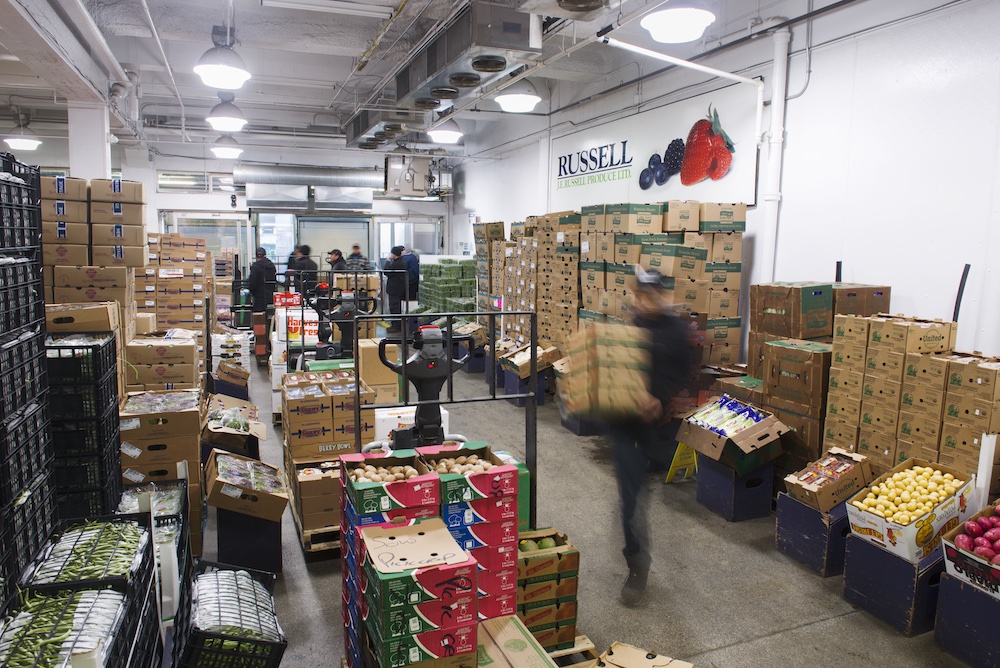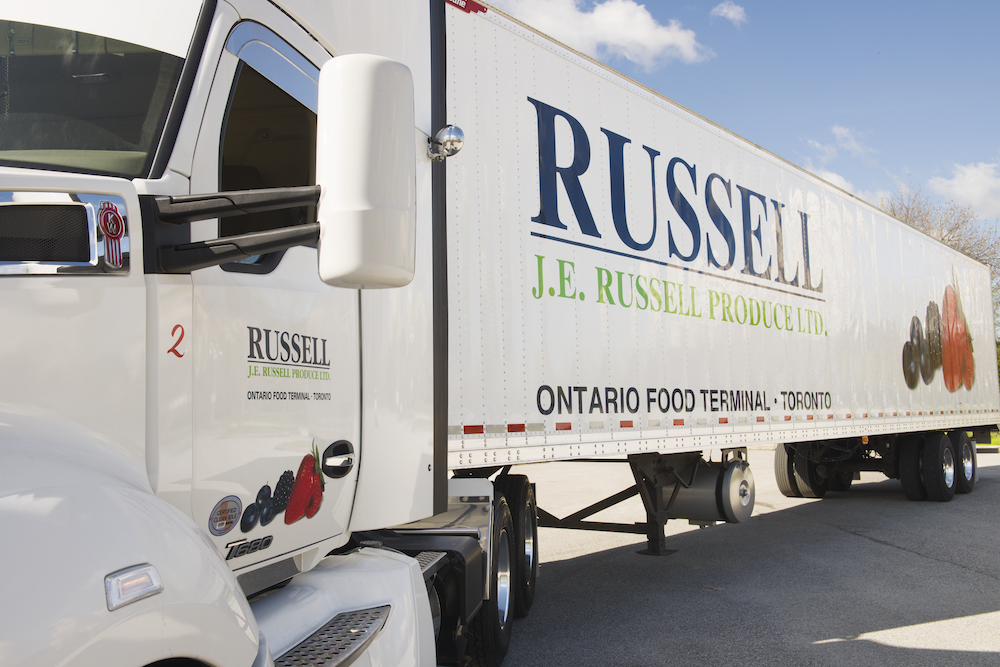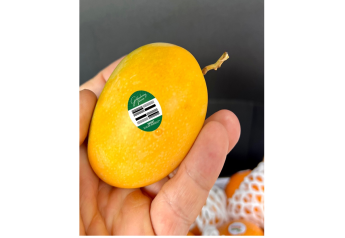Toronto retail demand is up and so are the challenges
Mike Mauti talks challenges, solutions and trends in Toronto's retail market
Toronto, as metropolitan and multicultural as New York City, is an important hub for produce retail — for Canadian, as well as U.S. suppliers and buyers.
In 2020, the latest data set available, there was $7.6 billion Canadian dollars’ worth of fresh produce traded between Canada and the U.S., said Mike Mauti, managing partner of Execulytics, a Milton, Ontario, produce consulting firm.
LISTEN: Mike Mauti talks Toronto retail on Tip of the Iceberg Podcast
And, of that, 96% of all Canadian produce exports are going to the U.S.
“That's how important United States is as a trading partner to Canadian producers. And the lion's share of that is actually the greenhouse products — so, peppers, tomatoes and cucumbers,” Mauti said.
On the flip side, 44% of all imports coming into Canada are from the U.S., and it's growing.
“The amount of imports coming from the U.S. into Canada is growing more than all countries combined,” he said.
Retail demand
Ontario shut down indoor dining at restaurants across the province again because of the omicron variant of COVID-19. The rule eased Jan. 31, allowing restaurants to fill their dining rooms up to 50% capacity.
Loblaws, Sobeys, Metro, Costco, Walmart and Patterson Group are Ontario’s major retailers, with Loblaws and Sobeys being national retail chains.
A wholly owned subsidiary of Empire Co. Ltd., Sobeys has more than 1,500 owned or franchised stores and 28 distribution centers nationwide.
Retail banners include Sobeys, Safeway, IGA extra, Thrifty Foods, IGA, Foodland, FreshCo, Lawtons Drugs, Rachelle-Béry, Needs, Marché Bonichoix and Les Marchés Tradition.
Metro has a network of about 950 food stores under several banners including Metro, Metro Plus, Super C and Food Basics.
There are about 130 supermarket locations under the Metro banner in Ontario. Food Basics, a discount store, is in 142 locations across Ontario.
Overall sales at Metro are up almost 1% compared to the same time last year, and 7% versus two years ago, according to a news release.
The first quarter of Metro’s fiscal year 2022 (ending Dec. 18, 2021) remained strong, reaching $4,316.6 million, up 0.9% compared to $4,278.2 million in the first quarter of 2021, and up 7.1% over two years.
Food same-store sales were down 1.4% versus the same quarter last year (up 10.0% in 2021), but increased 8.5% compared to the first quarter of 2020.
Online food sales were flat versus last year (up about 170% in 2021). Food basket inflation was about 3.5%. Inflation was 2% the previous quarter.
"We delivered strong results in our first quarter of 2022, driven by continued sales growth on top of record sales last year and good expense control,” Metro President and CEO Eric La Fléche said in the release.
Foodservice business has never returned to its pre-pandemic 30% of business, and retail business has remained a larger portion of sales ever since at J.E. Russell Produce, fresh produce wholesaler based at the Toronto-area Ontario Food Terminal.
“To a certain degree, because Ontario has been in various states of lockdown for almost two years now, the business has stabilized at a new level,” said Hutch Morton, senior vice president of business development, compliance and marketing at J.E. Russell Produce.

The changes in public health, government rules and economic shifts have meant retail is now a larger percentage of overall business, he said.
“There is a ton of pent-up demand, and once we get a little warm weather, it’s my hope that the floodgates really open for the sector,” he said.
When COVID-19 infections were lower in summer and early fall of 2021, retail sales dropped a bit, as expected.
Sales for the quarter ending Oct. 30, 2021, increased by 4.9% at Sobeys, primarily driven by the acquisition of Longo’s, higher fuel sales and benefits from Project Horizon initiatives, according to a news release. Project Horizon is Sobeys’ three-year plan to expand and speed up the company’s e-commerce.
“The increase is partially offset by the stabilization of consumer buying behavior as COVID-19 restrictions are eased across the country,” the release said.
Retail demand, risen since then, will likely downshift again as the impact of the omicron variant wanes.
Challenges
The price pressures that have been pushing costs higher with growers and shippers have certainly made their way to the Toronto market, Morton said.
“While we try to protect our customers from these costs as best as we can, it’s nearly impossible to absorb all of the costs. Unsurprisingly, those costs get passed along to consumers, which is tough on families,” he said.
Morton has seen a lot of data and heard many stories about consumers changing their shopping behavior because of inflation.
Retailers are responding.
“Our industry is facing higher-than-normal inflationary pressures, and our teams are working hard to provide the best value possible to our customers,” Metro’s La Fléche said in the release. “The rapid spread of the omicron variant since the end of the quarter has caused challenges in our operations, and I want to thank all our front-line employees for their commitment in these trying times.”
Toronto-area inflation is found in the products that require more logistics — items such as California vegetables, Mauti said. Local programs aren’t affected as much.
As of Jan. 15, Canada made a COVID-19 vaccine mandate for truckers crossing into Canada from the U.S. or between Canadian provinces. Then, on Jan. 22, the U.S. set a mandate for non-U.S. truckers crossing into the U.S.

“The whole cross-border issue with the pandemic and vaccine mandates has caused a real shortfall of available carriers. And then, add to that, just, the added costs. Transportation has been through the roof over the last months,” Mauti said. “I think the stores are doing a phenomenal job of shielding the customer from a lot of these problems.”
Read more: Trucker vaccine mandates slam North American produce industry
Even a trained eye could think the shelves are still full, with everything shoppers need there to do a full shop.
Produce departments may not have every brand or variety of the products they usually have, but front-store employees are covering up shortages well so it’s less noticeable or impactful.
Also, restrictions on temporary foreign workers at the farm level have a trickle-down effect into the grocery store.
“We really saw that in 2020 with our local asparagus program,” Mauti said.
Adjustments for buyers and suppliers
Mauti recommends two strategies that can help retail buyers and suppliers maneuver through these challenges: Focus more on domestic programs and plan much more in advance for import programs.
In Canada, there are plenty of year-round domestic programs with a fairly good selection of categories.
“Buyers can increase their merchandising efforts on those categories in order to take the risk away from some of the more logistically complicated programs,” Mauti said. “Things like greenhouse products, apples, potatoes, some of the root vegetable products.”
Yet, Toronto area retailers can’t have a winter program without California citrus or vegetables.
“So, for those programs, I think they really need to hunker down and put a little bit more lead time into their planning so that they'll be sure to get the trucks that they need,” he said. “The same goes for offshore importing, with all the port delays possible. Advance those lead times so you can surely get the supplies that you need.”
Daily communication, digitally, has helped J.E. Russell Produce supply its retail customers better.
The company sends customers a daily price list and shares about specials and features.
“This has been a new development during the pandemic, as we’ve had customers who buy without the same physical presence at the market that they once had,” Morton said.
Related news: 2022 brings big challenges in supply chain, logistics, trucking







